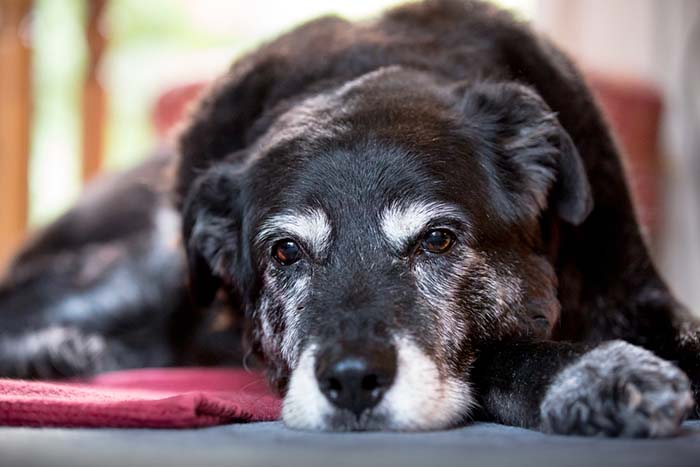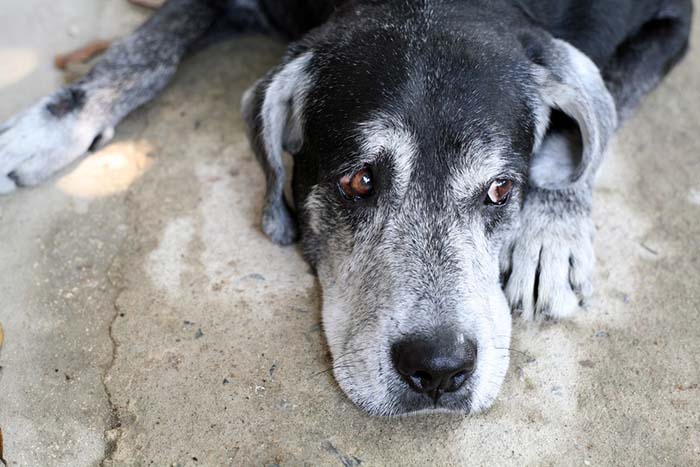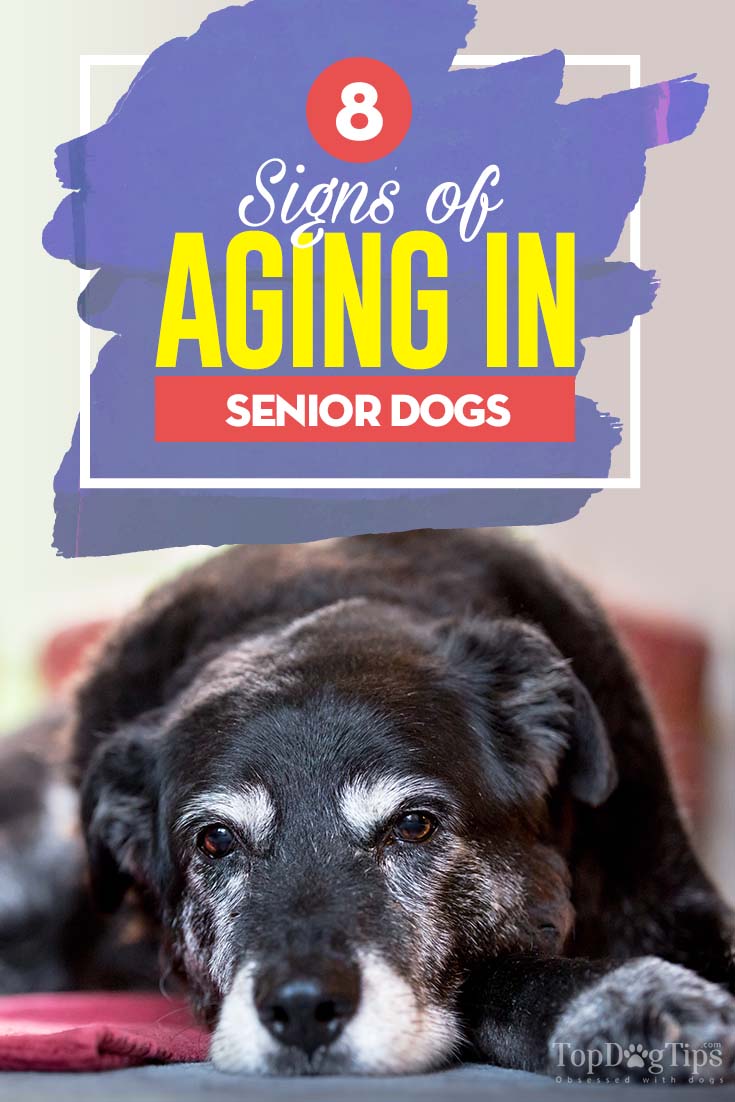Old dogs require extra care and attention, but spotting signs of an aging dog whose health is deteriorating can sometimes be difficult.
Like humans, the signs of aging slowly creep in dogs. For many owners, this might be the worst aspect of having a pet, watching the life of a beloved one slowly leaving them. But paying attention to these signs is important because you can do something to limit health issues that could affect the quality of life of your four-legged pooch, and maybe even extend the dog's lifespan. Here are eight signs of aging in senior dogs.
1. Slowing Down
If your dog is slow to walk, run or move, it could be a sign that he's suffering from painful joints or stiff legs. Arthritis and osteoarthritis are very common in aging dogs and apart from slowing down, it can trigger behavioral changes in the animal, according to a study in the journal Canine Mobility. Your dog won't say he's in pain but if he's cranky, irritable and a bit more aggressive, bring him to the vet as soon as possible.
2. Weight Gain
Pooches get pudgy in old age because their metabolism is slowing down. It might also mean their body has thyroid issues. There are medications that can help manage thyroid problems, according to Dr. David Bruyette of the VCA West Los Angeles Animal Hospital (source). However, you might also want to switch his diet to low-calorie foods. Do not reduce the protein intake, which is an old myth that has been debunked. Instead, look into senior foods or other formulas designed for weight loss.
3. Bad Breath
Granted, many dogs don't have minty fresh breath. However, those who have a dental disease will smell noticeable bad. Many pet owners say it's like these dogs have rotting garbage inside their mouth. Dental problems are one of the earliest signs of aging in dogs and it's the most urgent health issue that needs to be cured. Your dog could suffer from tooth decay that can affect his heart and general health, so don't delay the vet visit.
4. No Response
Your dog might no longer be rushing to you when he hears his name and it's not because he's being stubborn, but likely because he's growing deaf. If your dog has neither response nor reaction when there are stimuli around him, it's possible he's losing his hearing. To be sure, always get your Fido checked when you notice this sign.
5. Bad Hair Condition
Flakiness, hair loss, hot spots, dry coat — these are just some of the signs of a deteriorating coat. There are many health problems that could be associated with these conditions and the best thing to do to ensure that nothing is wrong with your dog is to get a test and assessment from the vet.
6. Bathroom Accidents
Dogs can, unfortunately, lose control of their bladder in their senior years or they might need more bathroom breaks than normal. Be sure to leave pee pads on their favorite spot or corners so that they won't make any mess when they relieve themselves. However, if your dog is having a serious incontinence issue and regular bathroom accidents more and more often, then it might be time to get the dog checked for a medical problem.
7. Cloudy Eyes
According to veterinarians, it's normal for dogs to develop a haze in their eyes as they age. However, cloudy eyes might be a sign of cataracts, glaucoma, or nuclear sclerosis. The symptoms of these eye diseases are varied but visit your vet as soon as possible if your dog has eye discharge, bulging eyes, red or irritated eyes, and vision loss. Occasionally, symptoms of other eye problems can also show themselves.
8. Excessive Sleeping
Dogs generally sleep more than humans. Old dogs might indulge in sleep even more. But note that one of the earliest symptoms of anemia in dogs, or the reduction of red blood cells in your dog's body, is excessive sleeping and it shouldn't be taken so lightly. Visit your vet right away as anemia can also be a symptom of a more serious condition like chronic kidney disease or cancer.
READ NEXT: 8 Signs Your Dog Is Experiencing Joint Pain

















